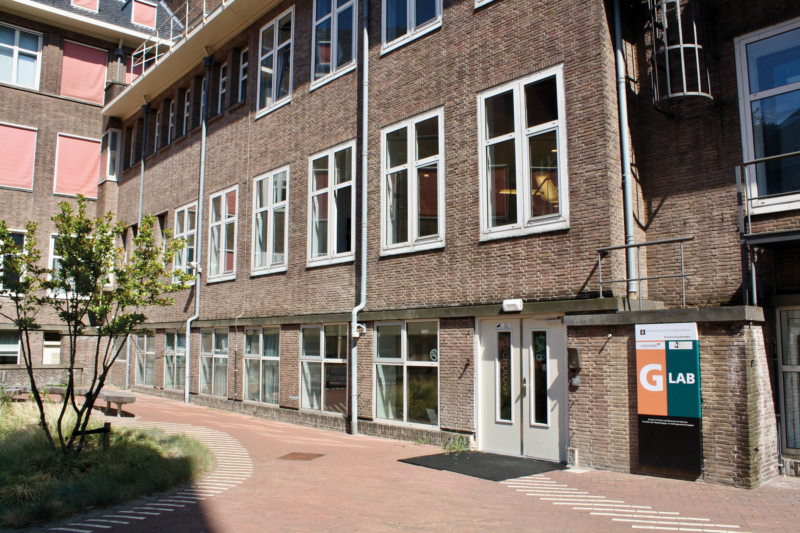

When UvA’s Faculty of Social and Behavioural Sciences (FMG) presented its numbers on the last quarter of 2018, it showed the faculty was still deeply in the red: 4.9 million euros for the entire year. This wasn’t exactly news, as the faculty has been trying for years to move beyond their budget deficit. The size of the debt was surprising though, as it was only expected to be 4.5 million. While trying to get back to a healthy financial situation, the deficit built up to be almost half a million more than expected. As it seems, our own Psychology department has to do a great deal with the faculty’s poor financial situation.
There are a number of things that can explain the negative balance. The most important one was a decline in applications of new students. While in 2013/2014 more than 8,300 students were doing a bachelor’s or master’s programme in psychology, communication, child education or social sciences, this amount had declined to 7,100 by 2016/2017. The FMG only expects to be out of debt by 2021, and, until then, the faculty will be struggling. Luckily, in recent years, the amount of students has rebounded. Still, this won’t fully cover for the committed expenditure, so the faculty is looking for other ways to cut its budget as well.
So the situation at the FMG is gradually getting financially better. Psychology, however, isn’t really helpful in obtaining this goal, as the negative balance of our department is rather large with over half a million in losses for the first quarter of 2019, while only a loss of 230,000 was budgeted.
Psychology is one of the worst performing FMG departments. So how come Psychology is doing as badly as it is? Psychology was one of the studies that had to deal with a large decline in new students some years ago. Besides, there were some other setbacks, such as the compensation for the costs of the LAB-building that had been cut by half. Although the board of Psychology has made lots of cuts, by diminishing free elective courses and tutor classes, as well as the time teachers are allocated for supervising theses – the end of the money struggles isn’t nearly in sight.
While waiting for things to get better, what ought our department to do? Psychology has a long tradition of studying the rich and wealthy. One of the most remarkable insights this branch of research has produced is that more money doesn’t necessarily make you happier. There seems to be some kind of ceiling to the happiness you can buy for yourself. Maybe the department took this logic a bit in reverse as we are now in quite an unhappy place – financially speaking. Luckily, Psychology’s own research states more money doesn’t guarantee more happiness. Maybe that’s an insight the department should hold on to.

When UvA’s Faculty of Social and Behavioural Sciences (FMG) presented its numbers on the last quarter of 2018, it showed the faculty was still deeply in the red: 4.9 million euros for the entire year. This wasn’t exactly news, as the faculty has been trying for years to move beyond their budget deficit. The size of the debt was surprising though, as it was only expected to be 4.5 million. While trying to get back to a healthy financial situation, the deficit built up to be almost half a million more than expected. As it seems, our own Psychology department has to do a great deal with the faculty’s poor financial situation.
There are a number of things that can explain the negative balance. The most important one was a decline in applications of new students. While in 2013/2014 more than 8,300 students were doing a bachelor’s or master’s programme in psychology, communication, child education or social sciences, this amount had declined to 7,100 by 2016/2017. The FMG only expects to be out of debt by 2021, and, until then, the faculty will be struggling. Luckily, in recent years, the amount of students has rebounded. Still, this won’t fully cover for the committed expenditure, so the faculty is looking for other ways to cut its budget as well.
So the situation at the FMG is gradually getting financially better. Psychology, however, isn’t really helpful in obtaining this goal, as the negative balance of our department is rather large with over half a million in losses for the first quarter of 2019, while only a loss of 230,000 was budgeted.
Psychology is one of the worst performing FMG departments. So how come Psychology is doing as badly as it is? Psychology was one of the studies that had to deal with a large decline in new students some years ago. Besides, there were some other setbacks, such as the compensation for the costs of the LAB-building that had been cut by half. Although the board of Psychology has made lots of cuts, by diminishing free elective courses and tutor classes, as well as the time teachers are allocated for supervising theses – the end of the money struggles isn’t nearly in sight.
While waiting for things to get better, what ought our department to do? Psychology has a long tradition of studying the rich and wealthy. One of the most remarkable insights this branch of research has produced is that more money doesn’t necessarily make you happier. There seems to be some kind of ceiling to the happiness you can buy for yourself. Maybe the department took this logic a bit in reverse as we are now in quite an unhappy place – financially speaking. Luckily, Psychology’s own research states more money doesn’t guarantee more happiness. Maybe that’s an insight the department should hold on to.

